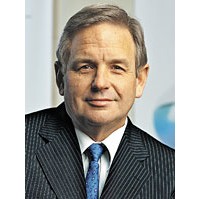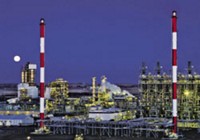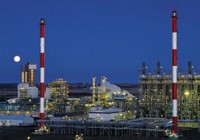Advertisement
Grab your lab coat. Let's get started
Welcome!
Welcome!
Create an account below to get 6 C&EN articles per month, receive newsletters and more - all free.
It seems this is your first time logging in online. Please enter the following information to continue.
As an ACS member you automatically get access to this site. All we need is few more details to create your reading experience.
Not you? Sign in with a different account.
Not you? Sign in with a different account.
ERROR 1
ERROR 1
ERROR 2
ERROR 2
ERROR 2
ERROR 2
ERROR 2
Password and Confirm password must match.
If you have an ACS member number, please enter it here so we can link this account to your membership. (optional)
ERROR 2
ACS values your privacy. By submitting your information, you are gaining access to C&EN and subscribing to our weekly newsletter. We use the information you provide to make your reading experience better, and we will never sell your data to third party members.
Business
Lipton To Receive Palladium Medal
Nova Chemicals CEO is cited for contributions to the chemical industry and his company
by William J. Storck
May 7, 2007
| A version of this story appeared in
Volume 85, Issue 19
ON MAY 10, Jeffrey M. Lipton, president and chief executive officer of Nova Chemicals, will receive the International Palladium Medal in New York City. The award, the highest given by the American Section of the Soci??t?? de Chimie Industrielle, is presented every two years to an individual whose contribution to the chemical industry is "of such character and scope as to enhance the international aims and objectives" of the society.
The 64-year-old Lipton follows medal recipients such as Edgar S. Woolard Jr. of DuPont, Earnest W. Deavenport Jr. of Eastman Chemical, William S. Stavropoulos of Dow Chemical, Vincent A. Calarco of Chemtura, and J??rgen F. Strube of BASF, all CEOs of their companies. Lipton is a past-chairman of the society's American Section and is currently chairman of the board of the American Chemistry Council.
When he gives his acceptance remarks at the award dinner, Lipton says he will talk about what he has learned from some of the past medal recipients. For instance, he says, "Vince Calarco convinced our trade association [the American Chemistry Council] that we ought to be thinking internationally and not just thinking about the U.S. He basically pulled us and dragged us into coordination and cooperation with trade associations around the world. That now has caught fire, and we are trying to work as a global industry."
And Lipton wants to talk about how the industry does business. Under this umbrella, he puts not just the industry's Responsible Care safety program but also how performance is motivated and measured and how executives manage larger, complex chemical companies.
"All through my career, I've tried to continually change and improve things," Lipton says. "I had a thirst for change, and people resist change." Lipton acknowledges that he can be "a royal pain in the neck." Consequently, he says with a grin, "in my 29 years at DuPont, I must have had 39 jobs."
In his award speech, Lipton also will focus on the challenges chemical companies face as they become large and, therefore, very complex. "It is not like managing ExxonMobil, which is a relatively straightforward enterprise that can be managed very effectively in large scale," he says. "But if you try to run a company like DuPont, Dow Chemical, or BASF unless you have very unique leadership, you can't get it done well."
Lipton grew up in a family of modest means in the Bronx, N.Y. While at the Bronx High School of Science, he fell in love with mathematics, chemistry, and physics. But like many students, he had little idea what he was going to do with his life, so he went to his guidance counselor for advice.
The counselor asked what subjects he liked best. "I like mathematics and chemistry," Lipton said. "Well, then, you should become a chemical engineer," the adviser replied. "It's like a trade. No matter what happens, you'll be able to fall back on your chemical engineering."
The counselor gave him a list of schools to which he could apply. "I never went to visit any of them," Lipton says. "I didn't have enough money to travel. I barely scraped up enough money to apply." He applied to the school that could give him the biggest scholarship???Rensselaer Polytechnic Institute???and was accepted.
Lipton received a bachelor's degree in chemical engineering from Rensselaer in 1963 and an M.B.A. from Harvard Business School in 1965. He started working full-time at DuPont that year and held a series of jobs in manufacturing, sales, marketing, purchasing, and R&D.
Lipton actually got his first taste of working for DuPont in the summer after his senior year in college at a more than 100-year-old pigment plant in Newark, N.J. Here's how Lipton remembers getting that career-starting job: "I went to see the head of employee relations and told him I would like to work for the summer since I was going to graduate school and needed money. He said, 'Come with me.' We walked into the plant manager's office, and they hired me on the spot. That's how I started working in the chemical industry. And then I went off to Harvard Business School."
When Lipton came out of graduate school, DuPont offered him jobs at four or five locations, he says. "When I picked Newark, they couldn't believe that a Harvard Business School graduate would want to work at that plant. I told them that the people who worked there were just like the people in my neighborhood; I really like working there."
From 1986 to 1993 at DuPont, Lipton held vice presidential positions in medical products, polymer products, corporate marketing and continuous improvement, and corporate planning.
In 1994, he was recruited by a former DuPont executive, Ted Newell, to be chief financial officer at what was then called Nova Corp., headquartered in Calgary, Alberta. The company, which consisted of a gas pipeline business and a chemical business that included a plant acquired from DuPont, was in deep trouble, Lipton says. It was in over its head after acquiring a wide range of businesses, and Newell had been brought in to fix it.
"Never having worked or lived more than 10 or 15 miles from the Atlantic Ocean," Lipton says, "the thought of going to Calgary was kind of an adventure." He became president of Nova Corp. in 1996. Two years later, he was named president and CEO of Nova Chemicals, created from the former chemicals business of Nova Corp.
SINCE 1998, Nova's sales have grown at an average annual rate of slightly more than 15%, to $6.52 billion in 2006. Its stock performance, however, has been lackluster. Although its share price reached an all-time high of about $52 in early 2005, it recently has been trading at a little above $30.
Ask Lipton about the accomplishment at Nova that he is most proud of, and he is quick to answer: "I would say the best thing I've done is create a culture that values the concept of Responsible Care and also puts a tremendous focus on something the rest of the industry doesn't look at very much; that is, catastrophic failures and the risk of explosions that can destroy lives and a great deal of property."
To predict whether a unit faces catastrophic accidents, the company monitors process containment and the loss of material in a process. The firm also monitors fires, Lipton says. "We're the only company I know of—at least when we started—to ask for every uncontrolled fire, or evidence of one, like the sparking on a piece of electric wire, to be reported to the CEO.
"We went from having a plant that we acquired from DuPont that had on average a fire a week to, in the first quarter of this year, one flame in our entire company, everywhere in the world," Lipton says.
Last year, as a result, Nova Chemicals won an ACC Responsible Care Leadership Award. "I would have to say that getting that ethic into place and having people really believe in and live it is what I'm most proud of," he says.
Lipton is also proud of the "unique animal" that is Nova Chemicals. According to Lipton, his company is much more tightly focused than other commodity-based chemical producers that diversify into new fields to minimize the high cyclical risk in which demand and sales of major chemicals go up and down over certain periods of time. Nova's strategy is to reduce risk by upgrading its existing product mix with new technology. "We are going to stay focused and be as good as we can be," he says.
The company has done a tremendous amount of technical work, according to Lipton, and charges all employees to think about their actions and how they affect the value of Nova's shares. "What I've been trying to do is bring a business focus to Nova Chemicals that is relatively unique in medium- to large-size chemical companies," he says.
Nova is a large licensor of polyethylene technology. "We acquired the technology from DuPont, which had been licensing it for many years, and we continue that," Lipton says. When a new plant in India gets up and running, Nova technology will represent 40-50% of Indian polyethylene capacity, according to Lipton. The company now has three major licensees in India, including Reliance Industries, the largest chemical company there.
Nova also decided that selling plain polystyrene beads is not going to result in a good return to shareholders. According to Lipton, "It has generated a horrible return over the past five or six years. It's never going to be a good business, because there is very little differentiation of those beads, unlike polyethylene where you can create differentiated products."
One solution has been to venture downstream into expandable polystyrene. Nova now sells expandable polystyrene for use in unique beverage cups that can be used for both hot and cold drinks, "which is a trick," Lipton says. According to Lipton, McDonald's is starting to use these cups in Asia, and he expects that soon the chain will be testing them in Europe.
Another value-adding venture is a partnership with Dietrich Metal Framing, the largest maker of steel-reinforced walls in North America, to make floors and walls out of a combination of polystyrene and lightweight steel. The products, according to the two companies, provide advantages over traditional wood construction, including lower heating and cooling costs, improved strength and durability under adverse weather conditions, and resistance to termites and mold.
A third technology his company is pursuing is lightweight concrete, in which expandable polystyrene beads are put into concrete to significantly cut its weight without any loss of strength.
WHAT WOULD Lipton like to happen before he retires? "I would like to see us have a clear pathway to improve the styrenics business, which means a continuing consolidation," he says. "I think this segment of the industry badly needs consolidation and also badly needs technical infusion. We're trying to do both." One example is the company's recent expansion of its European styrenics joint venture with Ineos into North America (C&EN, March 26, page 26).
"I also would like to see a foundation for growth established for our performance products," he says, "although I don't think I'll be around long enough to see them start to grow.
"And finally," Lipton says, "I would like to see the industry get some semblance of stability in the ethylene-polyethylene marketplace. That stability is going to come only from learning that you don't need to run your plants at 100% of capacity all the time to make the best returns." According to Lipton, the steel industry and other major industries have learned that lesson, but only after massive consolidation.
Asked if there is anything that he regrets in his tenure at Nova, Lipton answers quickly. "I didn't get the stock price up to $70 per share," he says.






Join the conversation
Contact the reporter
Submit a Letter to the Editor for publication
Engage with us on Twitter